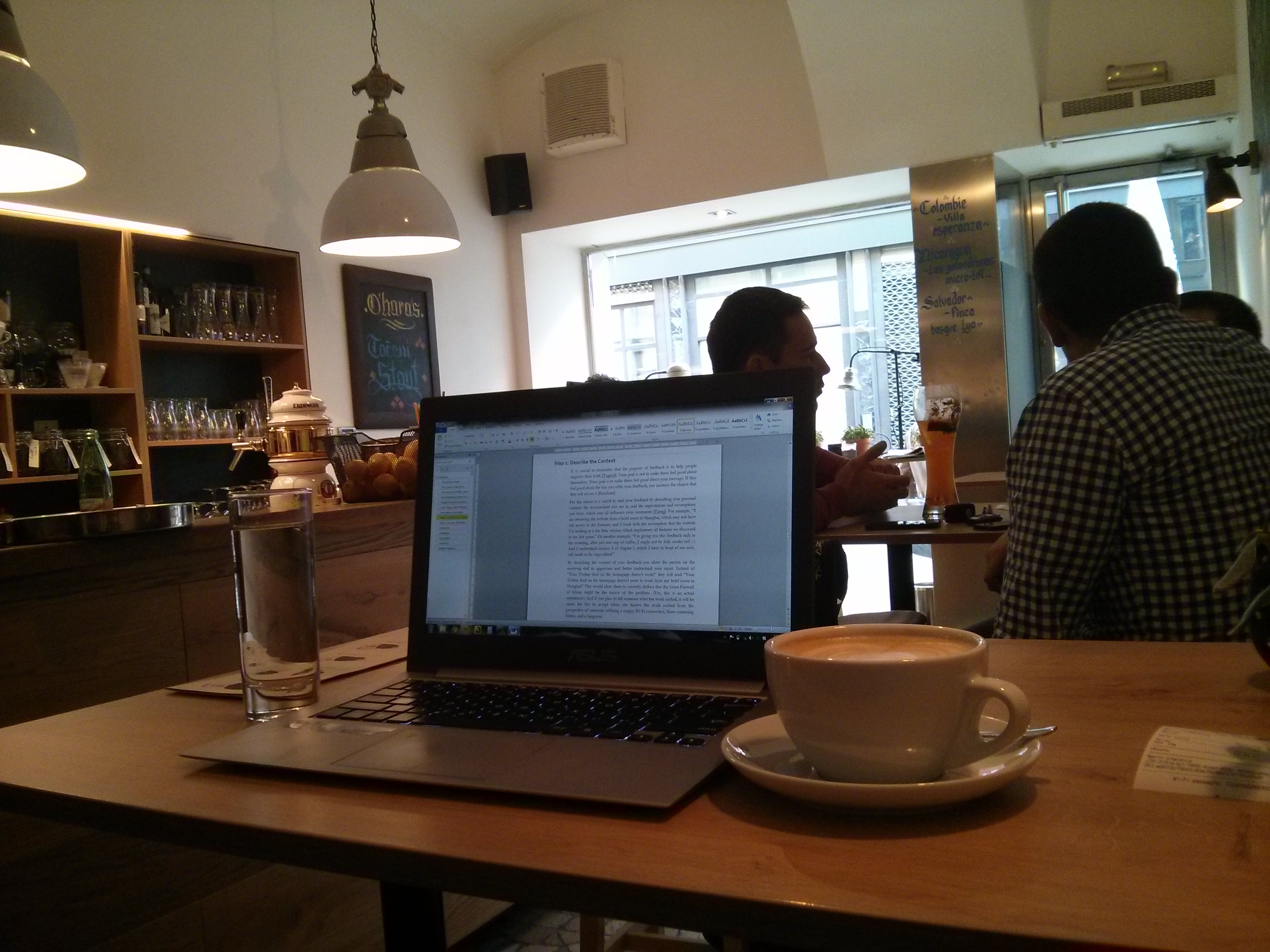Lisette Sutherland is an expert on remote working. I asked her these questions: What is…

I’m Not a Remote Worker
I don’t work remotely because I’m not away from anything where I’m supposed to be.
My flight to Hamburg was canceled two times, and thus I’m spending a day at Vienna airport reading articles, answering emails, sending invoices, and writing a blog post. And I started reading the book Why Managing Sucks and How to Fix It (Thompson, Ressler). Several quotes stood out to me in the first chapter:
“Remote work insinuates that we’re away from something, a physical location where work should be done.”
And:
“Words to remove from your vocabulary if you’re serious about moving into the twenty-first century include the following: flex worker, teleworker, remote worker, virtual worker, mobile worker, telecommuter . . . and, if we had it our way, part- and full-timer. Since when do we need to stick labels on people to be able to refer to them? Why do we label people in the first place? Simple: to mark that they are doing something different from the norm. And the insinuation that comes with the labeling is that they are doing something different from what they’re supposed to be doing.”
And:
“Work is not a place where you go. Work is something you do.”
Indeed!
I always thought of myself as a remote worker. But I’m not.
I don’t work remotely because I’m not away from anything where I’m supposed to be. (OK, I was supposed to be in Hamburg right now, but that was just for a few hours.) My work is always with me. I think the same applies to many other creative networkers. Are “remote workers” deviants, who are outside the norm, as opposed to “normal workers”? Maybe not.
Maybe we should turn it around. Whether it’s a Starbucks café, an airport, a conference venue, or a sauna, working where you are is the new normal. Maybe the people who go to one specific place they call “work” are the new deviants in the 21st century.
Maybe they are the stagnant workers.





